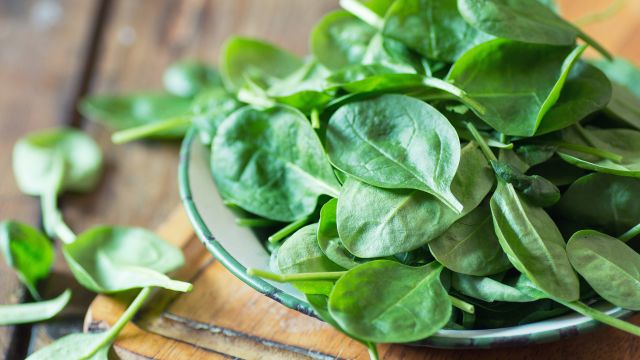Updated on June 24, 2022.
Your body needs the right nutrients in the right amounts to maintain bone mass. You probably know about the importance of calcium and vitamin D. Vitamin D helps your body absorb bone-building calcium, and these nutrients do their best work when taken together. But do you know about the other nutrients that work in concert to help keep your skeleton strong?
Here is a sampling of foods to add your plate for optimal bone health, with the key constituents they contain.
Low-fat dairy
There’s no getting around it. Your body needs calcium to build and maintain strong bones. And yogurt has lots of it, as does milk and cheese.
Don’t love dairy? You can also get significant amounts of calcium from eating leafy greens like spinach or kale or drinking fortified orange juice.
Check with a healthcare provider (HCP) on the optimal amount for you. They may recommend supplements to get up to at least 1,000 milligrams (mg) of calcium and 600 international units (IU) of vitamin D a day. Be especially attuned to your HCP’s recommendations if you have brittle bones, such as osteoporosis or osteopenia, a precursor to osteoporosis.
Fatty fish
Oily, cold-water fish like salmon, sardines, and mackerel are a good source of vitamin D. The benefits of eating fish don’t stop there. Salmon is also a good source of protein and vitamin B12, two more contributors to strong bones.
If you’re not a fan of fish, you can also find D in egg yolks and fortified beverages.
That said, it can be hard to get all the D you need from food, and consuming too little may increase the risk of bone loss and fractures. The good news is that you can also get vitamin D the natural way, by letting your body make it.
When you spend 20 minutes a day outside in the sun, the body can make vitamin D through the sun’s contact with the skin. People with darker skin may need a little more sun exposure, up to 30 minutes per day, to get an adequate daily dose of the “sunshine vitamin.”
Spinach and other leafy greens
Leafy greens like spinach provide magnesium and vitamin K, two important helpers when it comes to building bone. If your body doesn't have enough magnesium, your bones could become more brittle. You'll also find healthy amounts of magnesium in cashew nuts, brown rice, and bananas.
Vitamin K is another nutrient found in abundance in most leafy greens. Research shows that for folks who are deficient in K, upping your intake to adequate levels can lower your risk of bone fracture. Women should shoot for 90 micrograms (mcg) per day, and men should get 120 mcg daily. Try adding cooked kale or collard greens to your menu as a side dish. In one 2019 study published in the Journal of Osteoporosis, people with highest intake of vitamin K had a 22 percent reduction in fracture risk.
Bananas
These tropical treats are one of the best sources of potassium, and studies have found that potassium lovers have stronger skeletons. Try to get yours from food and consult with an HCP before taking any supplements. The pill form may worsen heart conditions.
Besides bananas, other good sources of potassium include baked potatoes, plums, and tomatoes.
Avoid bone foes
While you're focusing on foods that help your body build bone, you'll also want to avoid excessive amounts of foods and ingredients that can deplete your bones. These include:
Salt: Excessive salt in your diet can wreak havoc on your bones because of the effect it may have on calcium balance and skeletal mass. The Centers for Disease Control and Prevention (CDC) recommends intake of no more than 2,300 mg of sodium per day.
Caffeine: A daily cup or two of coffee may reduce your risk of certain diseases like colon cancer, Alzheimer’s disease, and Parkinson’s disease, but too much caffeine may put you at risk for osteoporosis.
A 2021 study published in the British Journal of Clinical Pharmacology of people who consumed more than 800 mg of caffeine per day were at increased risk for osteoporosis. Meanwhile, a different study of 564 people published in 2019 in The Journal of Clinical Endocrinology & Metabolism showed that higher coffee consumption was not associated with fracture risk. More research is needed to confirm any potential link.
It’s generally believed that having 400 mg of caffeine per day—about the amount in four cups of coffee—is a safe amount for most people for overall health.
Colas: Studies show that overindulging in colas can harm bone mass density. One study published in 2019 in the journal Menopause found that women who consumed more than 14 servings a week of soft drinks had a 26 percent increased risk of hip fracture.
Alcohol: Routine, heavy alcohol use can decrease bone density and increase the risk of osteoporosis. Stick to generally accepted guidelines, which advise capping intake at one drink per day for women, two for men.







